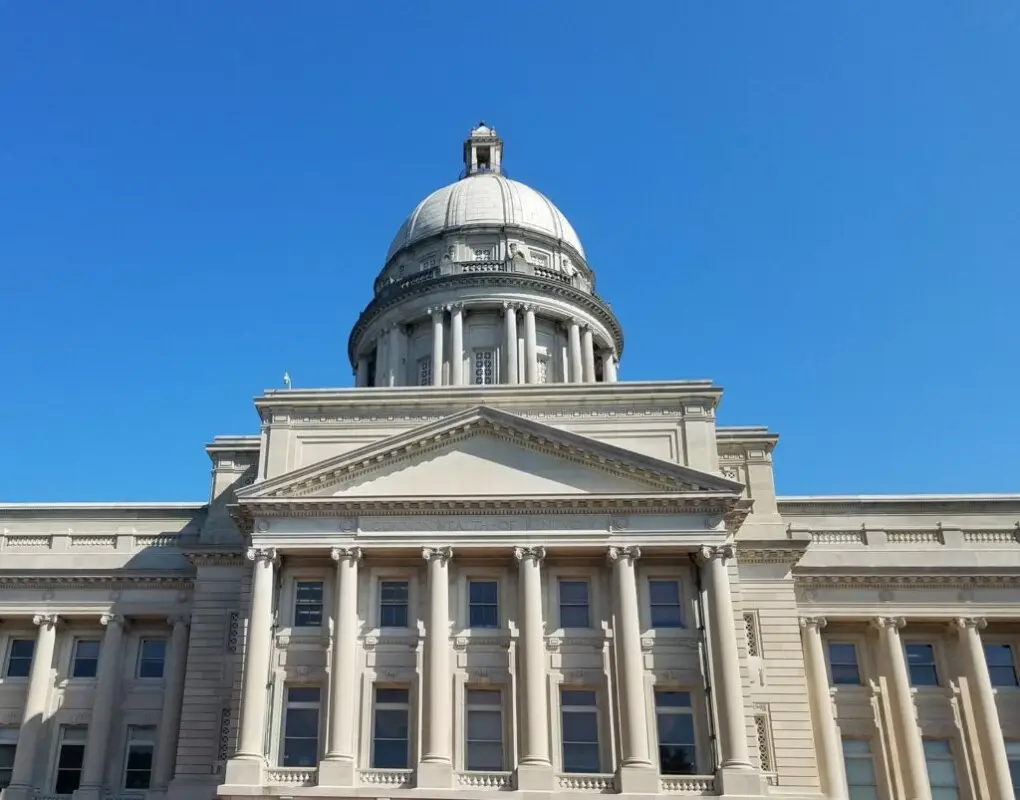WASHINGTON (BP) – The Kentucky Senate approved a proposed constitutional amendment to prohibit abortion a day after the U.S. Supreme Court agreed to decide if the state’s attorney general can defend a pro-life law previously invalidated by lower courts.
Senators voted 32-6 Tuesday (March 30) to present to Kentucky’s voters the proposed amendment, which says: “To protect human life, nothing in this Constitution shall be construed to secure or protect a right to abortion or require the funding of abortion.” The House of Representatives passed the measure in a 76-20 vote in late February.
Voters will decide the fate of the proposal in the November 2022 election. The amendment is intended to prevent a court from finding a right to abortion in the state constitution if the Supreme Court reverses its Roe v. Wade decision, said Rep. Joseph Fischer, the proposal’s sponsor, according to Kentucky Today. That 1973 ruling by the high court struck down state restrictions on abortion and legalized the procedure throughout the country.
On March 29, the Supreme Court granted review to an appeal by Kentucky Attorney General Daniel Cameron that he be permitted to intervene in a case involving a state ban on live dismemberment or dilation and evacuation (D&E) abortions if no other state official will defend the law. The high court is expected to hear oral arguments during its next term, which begins in October.
Southern Baptist ethicist Russell Moore told Baptist Press, “The forward momentum of pro-life laws across the nation by state leaders is commendable and ought to encourage those of us who work to uphold the sanctity of life. Kentucky’s legislators are working to make their state’s constitution clear that there is no right to an abortion.
“All of our work in the pro-life movement ought to be moving toward the moment when Roe v. Wade is overturned, because our work will take on all that much more importance in truly caring for vulnerable women, families and children,” said Moore, president of the Ethics & Religious Liberty Commission (ERLC).
He also said in written comments that the ERLC will watch Cameron’s case at the Supreme Court because “its outcome, though technical in argument, is significant for the future of Kentucky’s law restricting second-trimester abortions. The state has a duty to protect life, and these laws ensure more of our most vulnerable lives will not be harmed.”
Todd Gray, executive director-treasurer of the Kentucky Baptist Convention (KBC), expressed gratitude on behalf of the state’s Baptists legislators for permitting the proposal “to move forward so the citizens of the commonwealth can let their views be known,” Kentucky Today reported.
“We continue to pray for the day when legalized abortion, the greatest human rights atrocity of our day, will be abolished in Kentucky,” Gray said. “Now Kentuckians will get a chance to let their voice be heard should Roe v. Wade be overturned.”
Kentucky Today is an online publication of the KBC.
The Kentucky amendment is part of the effort in recent years by state legislatures with pro-life majorities to pass various bans on abortions early in pregnancy or to enact measures to prepare for a post-Roe world. Many legislators hope the bans will be found acceptable by the Supreme Court and possibly lead to Roe’s demise. The confirmation during the Trump administration of three justices considered to be conservative has given pro-life advocates hope the high court is ready to use a state law as the vehicle to overturn Roe.
The Texas Senate passed six pro-life bills Tuesday, including one that would prohibit abortion after a fetal heartbeat can be detected and another that would ultimately bar all abortions if Roe is reversed, according to the Austin American-Statesman. The heartbeat of an unborn child can be detected as early as six weeks into pregnancy. The House must still approve the measures.
In early March, Arkansas Gov. Asa Hutchinson signed into law the Unborn Child Protection Act, which prohibits all abortions in the state except to save the life of the mother in the case of a medical emergency.
South Carolina Gov. Henry McMaster signed into law in mid-February a fetal heartbeat ban.
The Supreme Court been considering since September whether to rule on Mississippi’s 15-week ban on abortions but has yet to announce its intentions.
A federal court struck down Kentucky’s Human Rights of Unborn Children Act, a 2018 law which prohibits dismemberment or D&E abortions on unborn children who are still alive. Abortion providers typically use the method – in which a child is torn apart piece by piece – in the second trimester of a pregnancy. The law is considered a humane effort to reduce the pain an aborted child would experience.
A panel of the Sixth Circuit Court of Appeals in Cincinnati upheld the lower-court ruling, and Eric Friedlander – appointed by Democratic Gov. Andy Beshear in 2019 as the secretary of the Cabinet for Health and Family Services – declined to defend the law any further. Cameron, a Republican, sought to intervene, asking the full appeals court to reconsider the decision. The Sixth Circuit panel, however, denied his request.
Cameron, a Republican, asked the Supreme Court to reverse the Sixth Circuit panel’s decision and permit him to defend the law. While the justices granted March 29 his petition that they consider his request for intervention, they declined his appeal that they vacate the Sixth Circuit’s ruling on Kentucky’s dismemberment law and order its reconsideration in light of a 2020 Supreme Court decision in which the controlling opinion regarding a Louisiana law restored a standard more favorable to pro-life advocates.
The case is Cameron v. EMW Women’s Surgical Center.
This article was written by Tom Strode, Washington Bureau Chief for Baptist Press. It was originally published at baptistpress.com.

